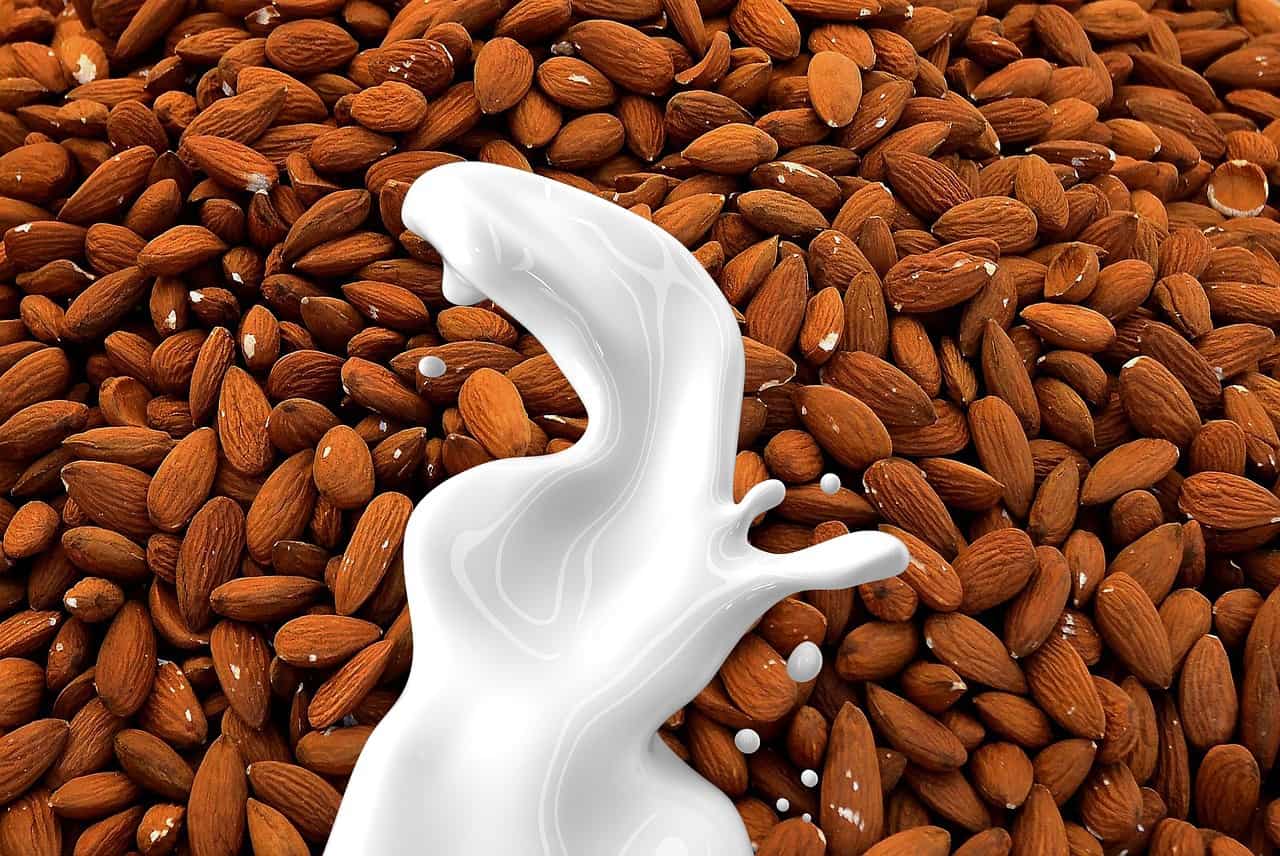Can Toddlers Drink Almond Milk: Is It the Right Choice?
Whether you’re on a diet or are lactose intolerant, chances are you’ve tried almond milk. It’s one of the most popular plant-based milk alternatives that you can find in the store. It’s also one of the easiest milk alternatives that you can replicate at home.
Almond milk is a favorite go-to for Vegans and for people looking to maintain a healthy weight. They come in sweetened, unsweetened, and flavored varieties. Almond milk is also useful for recipes around the kitchen.
For new parents, almond milk sounds nice for your toddler, especially if they are lactose intolerant. Almond milk has a mild flavor and can act as a substitute for dairy milk. But is almond milk as nutritious as any other milk product?
Can Toddlers Drink Almond Milk?
Most doctors will agree that babies should only drink breast milk when they are under a year old. And the American Academy of Pediatrics agrees. The AAP recommends that babies should only have breast milk before their first birthday.
But that rule applies to children under the age of 1. What about toddlers who are 1 to 3 years old?
Fortunately, experts do allow parents to introduce other beverages once a child turns 1 year old. And one of the beverages that are safe to give is almond milk. So yes, your toddler can have a sip of almond milk, provided that they are old enough.
But almond milk should not replace breast milk. Breast milk is still the best option that you can give to a toddler. Almond milk can’t compete with the nutrients and protection that breast milk gives.
So let’s say you want to give your child almond milk in between breast milk. What health benefits can you expect?
Health Benefits of Almond Milk
The biggest difference almond milk has compared to dairy milk is that almond milk is a lactose-free drink. That’s why it’s the go-to for people that want the taste milk without the side effects.
But almond milk is more than just a dairy replacement. Almond milk also has plenty of health benefits, such as being low in calories and sugar. It’s good for people who want to watch their weight and blood sugar.
There are plenty of other benefits to almond milk too. Almond milk is rich in vitamin E and D. It’s also safe for people who want to lower their phosphorus and potassium intake.
From the looks of it, almond milk sounds like a good dairy milk swap. But what we have been describing are health benefits for adults. While almond milk is good with what it has, it lacks some key nutrients that toddler needs.
Why Almond Milk Might Not Work for Toddlers
There are some things almond milk can’t replace from dairy. One of the major differences between these two drinks is fat content. Almond milk has significantly less fat than dairy milk.
For adults, fat is something that you want to control. But for toddlers, fat is necessary for the development of their brain. So while your kid can enjoy 8 grams of fat in a cup of dairy milk, almond milk can only provide around 2.5 grams of fat per cup.
Almond milk also lacks protein and calcium, both of which can be found in regular milk. Sure, protein is easy to find in other products like meat, fish, and eggs. But the best source of calcium is from dairy products. The only time you can get calcium from almond milk is when you buy commercialized fortified almond milk.
Finally, almond milk is too low on calories. Now, that’s alright for adults who are trying to lose weight. But for small, growing toddlers who need all the energy? Not so much.
Alternatives for Lactose Intolerant Toddlers
Buying the right food for a lactose-intolerant child can sometimes be challenging. Sure, you can easily provide protein and calcium with foods like leafy vegetables, fish, and tofu. But sometimes, milk is still necessary, especially for certain recipes.
If your child is craving milk, don’t worry! Almond milk is not the only dairy-free option out there.
Soy milk is a popular and great choice if you want a plant-based milk drink for your toddler. But there are plenty more options like oat, coconut, rice, and pea milk. All of these alternatives come with their own pros and cons.
There are a lot of milk beverages that your child can try if they have food restrictions. And they’re not the only ones who should try it. These milk drinks are enjoyable for people of any age, including you.
Should We Say Goodbye to Almond Milk Then?
Not necessarily. Almond milk may not have the same nutrients as breast milk or dairy milk, but your toddler can still drink it. In fact, it’s far better than giving them sugary juices or soda pops.
Almond milk is a good option if you intend it to be a snack-time treat. It’s not a replacement for any other milk. But if your child is after the taste of almond milk, feel free to give it to them.
Almond milk is far from unhealthy. While it does lack proper nutrients, it’s not comparable to junk food or candy. So as an occasional drink, almond milk is a safe and delicious, non-dairy drink that your toddler can enjoy.
Conclusion
Almond milk is a plant-based drink that people consume instead of dairy. For toddlers, it’s a nice beverage but definitely not comparable to breast milk or dairy.
Almond milk is safe for toddlers who are 1 year and older. But the drink lacks some key nutrients that other milk has. Notably, almond milk lacks fat, protein, and calcium.
But almond milk is still safe for consumption. Your toddler can have it as is or mixed in their food. Almond milk is also good for toddlers who are overweight or can’t eat certain food.
There are plenty of other plant-based milk drinks that are available in the supermarket. But for some people, almond milk is just too good to put down. And we simply can’t blame it if your toddler agrees as well.










